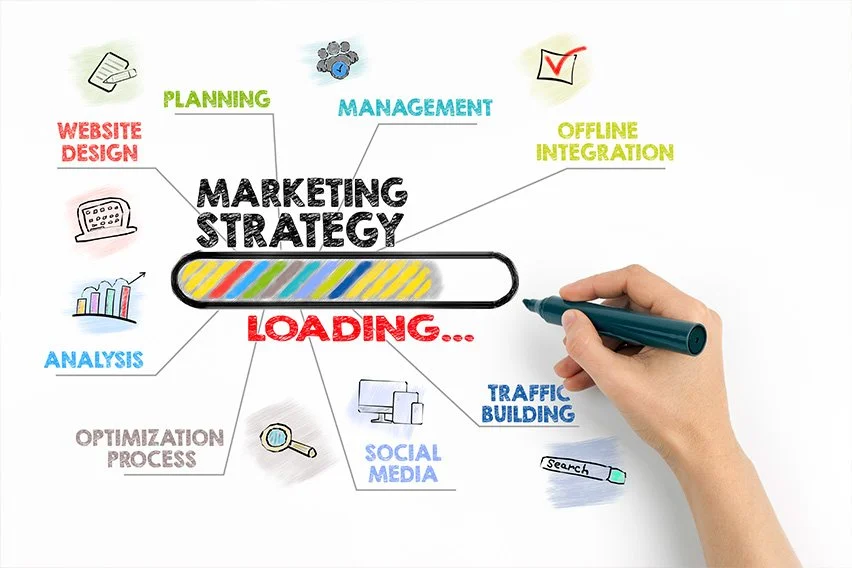Are you a small business owner looking to increase your leads and reach more potential customers? With the right marketing strategies, you can do just that! The strategies used by the FanDuel Casino from Michigan and other big companies are based on a 360-degree campaign, which provides the best results when it comes to volume but might not be the best fit for small businesses due to the investment requirements. Thus, consider our marketing strategies listed below to maximize your impact on a budget and gain an edge over the competition.

Social Media Outreach
Small businesses can greatly benefit from social media outreach. By connecting with their target audience through social media, small businesses can reach a wider audience and build relationships that can lead to business opportunities. There are many strategies that small businesses can use when creating effective content for social media, which are as follows:
- Write about topics that are relevant to your target audience.
- Use images and videos to illustrate your points, making your content more engaging and visually appealing.
- Make sure that your posts are regularly updated—this will keep your readers coming back for more!
- Optimize your posts for search engine visibility so that you can reach a wider audience online.
- Engage with your followers by responding directly to their comments or questions (and even by offering advice). This will create stronger relationships between you and your followers and help you build trust and credibility with them.
- Stay focused on building relationships with customers and partners, rather than focusing exclusively on selling products or services. This will lead to deeper connections between you (and your business) and enable you to generate more leads through customer referrals.
SEO Strategies for Lead Generation

Small businesses can be successful if they know how to market their businesses effectively. SEO, or search engine optimization, is one of the best ways to do this. Optimizing your content for important keywords and targeting long-tail keywords can help your small business rank higher in search engines. In addition, link-building and analytics will help you track progress and measure the effectiveness of your marketing strategies.
One great way to generate leads for your small business is through lead generation tactics such as eBooks or webinars. By creating something valuable that your target audience wants and offering it at a discount, you can generate high levels of interest in relatively short periods of time. You can also invest in pay-per-click advertising to quickly generate more traffic, which is especially beneficial for small businesses struggling to get online visibility.
Tips for Effective Email Marketing
Email marketing is one of the most effective ways to reach out to your target audience and convert them into customers. By understanding your audience and tailoring your emails according to their needs, you can increase the chances of converting them into buyers.
One of the most important things to remember when using email marketing is to include a powerful “call-to-action” in each email. This should encourage your customer to take some action, like signing up for a mailing list or downloading a white paper. The call-to-action should be clear and concise so that your customer knows exactly what they need to do to take advantage of your offer.
Elite campaigns with rich mediums like images, videos, and graphics can drive home your message and encourage customers to take action. Make sure that all of your visuals are optimized for SEO to show up high in search engine results pages (SERPs). Additionally, make sure that the subject line is eye-catching enough for people to open up your email at first glance.
Maximize Your Impact on a Budget

Identifying your target audience is one of the first steps in any marketing plan. This may seem obvious, but it’s important to remember that not all customers are alike. By understanding who your customer is and what they want from you, you can create content and campaigns that appeal to them specifically.
Once you’ve identified your target audience, connecting with them is important. This may involve anything from sending out targeted emails to running social media campaigns targeted at their interests.
Now that you’ve connected with your customers and created a relationship with them, it’s time to create a long-term marketing strategy, which should include goals such as increasing traffic or sales numbers, developing brand awareness or credibility among potential customers, or increasing loyalty among current customers.
The final step in any small business marketing plan is creating creative content that engages and captivates your target audience. Creating high-quality content takes time and effort (just like any other form of marketing), but it’s an essential part of reaching out to potential customers and building lasting relationships.
In Conclusion
Small businesses are the backbone of the global economy, but they need to know how to market effectively and reach their target audience to succeed. From social media outreach and SEO strategies to email marketing and maximizing impact on a budget, there are many ways small businesses can increase their leads and find success. With the right marketing strategies, small businesses can create powerful customer relationships that will last into the future.